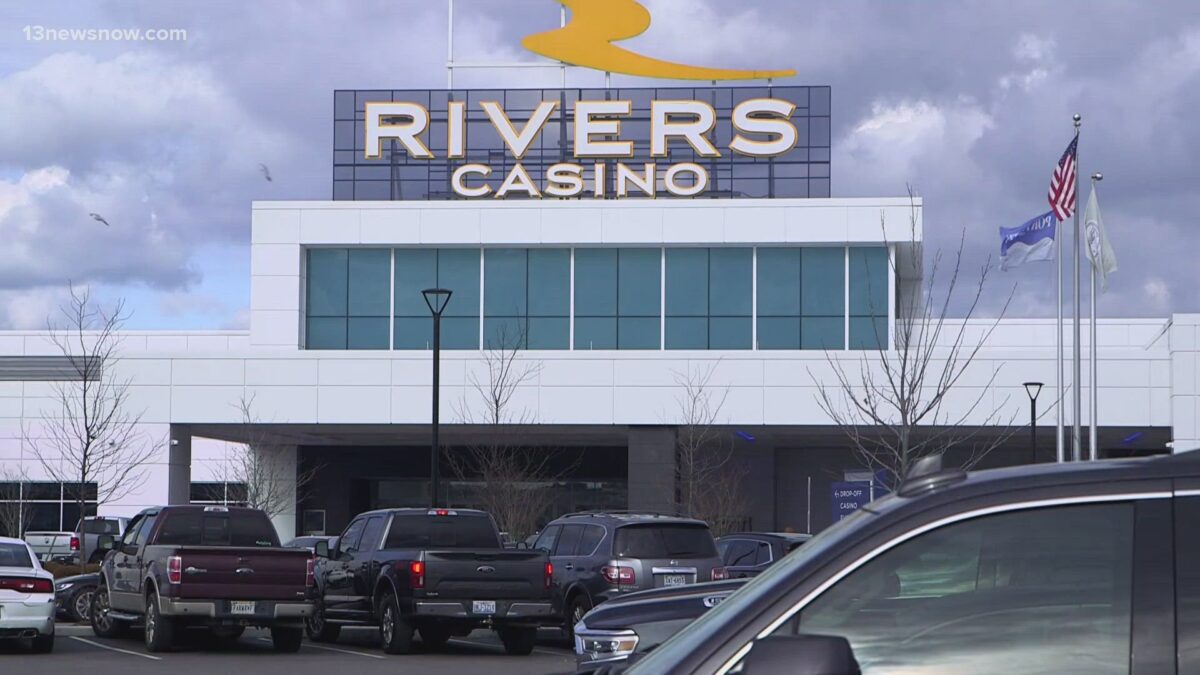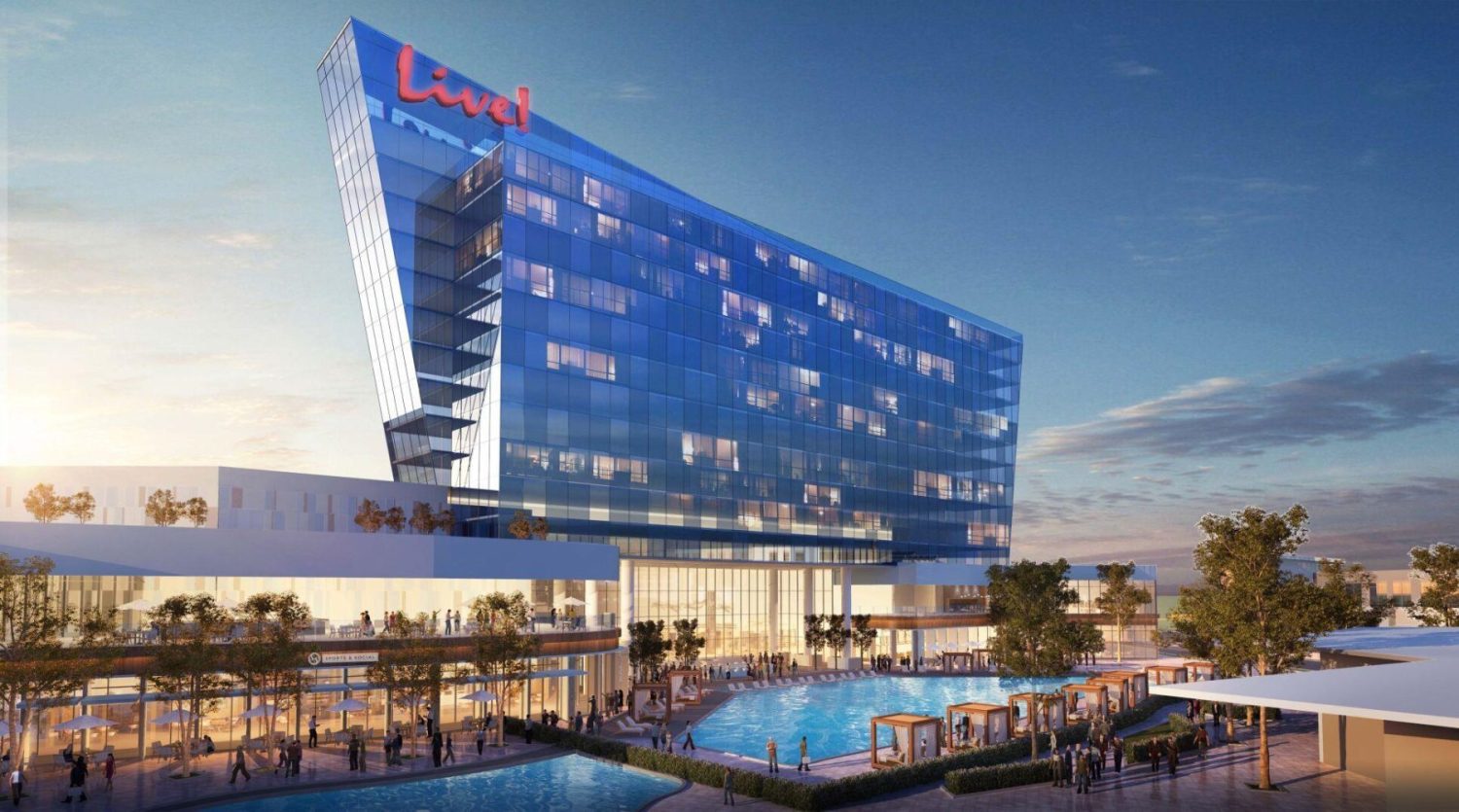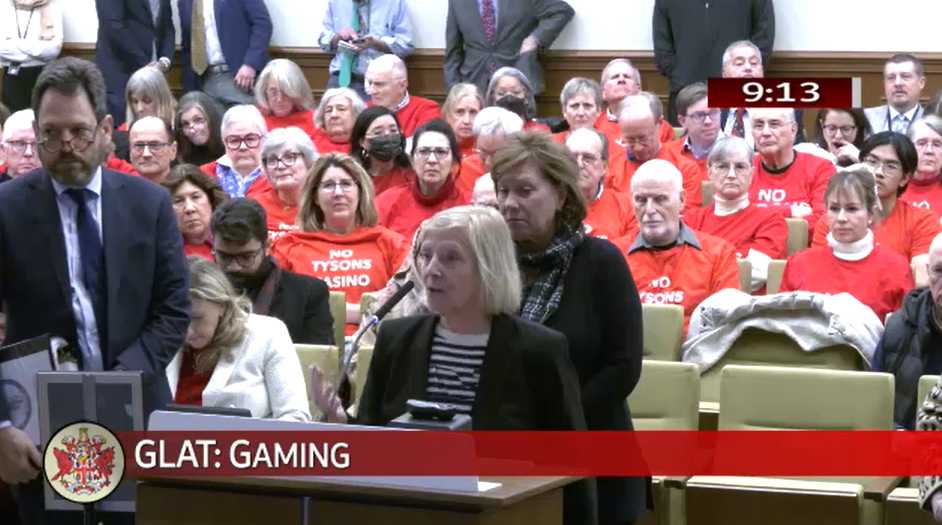
A bill that would make Fairfax County eligible for a casino is again making headway through the Virginia Senate.
A gaming subcommittee voted 5-2 this afternoon (Monday) with Sen. Adam Ebbin (D-39) abstaining to report Senate Bill 982 to the full Senate General Laws and Technology Committee, which is scheduled to meet next at 11 a.m. on Wednesday (Jan. 22).
On a tie vote, that committee advanced a similar bill proposed last year by state Sen. Dave Marsden (D-35), only for the Senate Finance and Appropriations Committee to table the legislation at the recommendation of a subcommittee that suggested a need for more analysis.
Championed by Senate Majority Leader Scott Surovell (D-34), the bill currently under consideration would allow the Fairfax County Board of Supervisors to call for a voter referendum to allow a casino. While the bill doesn’t designate a specific developer or location, it includes requirements that would limit the facility to a site along Metro’s Silver Line in Tysons.
Buoyed by a reported peace-labor agreement with Comstock, the developer seeking to build the casino as part of an entertainment district in Tysons, labor union leaders and members came out in force to support the proposed bill, arguing that it will create well-paying, “life-changing” jobs and give Fairfax County a much-needed new source of commercial revenue.
“How many times have you seen labor and the chamber of commerce stand in unity?” said a labor representative who spoke after Northern Virginia Chamber of Commerce President and CEO Julie Coons.
Joining unions representing electricians, plumbers, food workers, construction workers and more, Fairfax County Federation of Teachers member Emily VanDerHoff noted that her union has just gotten its first collective bargaining contracts approved, but it’s unclear whether money will be available to fund the included salary increases.
“This is one of the ways we can bring more revenue into Fairfax County without raising taxes on our constituents,” she said.
Casino opponents, many of them wearing bright red “No Tysons Casino” T-shirts and identifying as residents of Reston or the Tysons area, countered that a casino could raise crime, traffic and national security concerns, given the targeted area’s proximity to the CIA headquarters and abundance of federal government workers.
Some pointed out that, unlike the localities approved for a casino, no community members or Fairfax County elected officials had requested the authority to allow one from the Virginia General Assembly. Others argued that Tysons doesn’t need a casino to facilitate development and boost jobs.
“Fairfax County doesn’t need a casino for economic growth. We are the Silicon Valley of the East,” a resident of the Rotonda Condominiums said.
Another resident questioned why unions have rallied behind the casino as opposed to other construction projects going up in Tysons.
“We have hundreds of people working now and buildings being built. They should all be union jobs,” Tom Lewis said.
Some casino opponents expressed support for an entertainment district in Tysons but contended that it wouldn’t need a casino to be viable. A flyer shared with lawmakers indicates that Comstock’s envisioned mixed-use development would also include a hotel, a performing arts venue, housing, a convention center and retail.
Connie Hartke, a member of the No Casino Coalition and the Reston Citizens Association, urged the senators to put Surovell’s bill and any other legislation to expand gambling in Virginia on hold until a Virginia Gaming Commission is established. A bill to create the regulatory body, proposed by Del. Paul Krizek (D-16), is under consideration in the House of Delegates.
While the Fairfax County Board of Supervisors hasn’t taken an official stance on the possibility of a casino, the county’s legislative director and lobbyist, Claudia Arko, testified that the board is both “very supportive of labor” and concerned about how much revenue from a casino would go to the state versus the county.
A casino gaming study conducted in 2019 by the state’s Joint Legislative Audit & Review Commission (JLARC) looked at revenue projections for a potential Northern Virginia casino but didn’t analyze the suitability of Fairfax County specifically, Arko noted.
Ultimately, she said the casino bill simply isn’t a priority for the Board of Supervisors, which is more concerned about getting the state to pay more for education after a 2023 JLARC study found that Fairfax County Public Schools and other districts have been underfunded.
“That’s something we would really like to move forward rather than something like this,” Arko said.
After the assembled speakers wrapped up their comments, Sen. Christopher Head (R-3) observed that SB 982 had gotten “overwhelming support from labor … and really no one else,” even though the actual text of the bill doesn’t mention labor protections.
“You don’t have anybody from community groups supporting this, and the community lined up almost out the door in opposition,” Head said.
Surovell expressed confidence that he could find community members in support of his bill if needed, noting that none of the speakers were from his district, which encompasses southeast Fairfax County.
“Most of them are screaming about their taxes right now,” he said of his constituents, adding that a Fairfax County casino would have implications for the entire county and state, not just Tysons.
Before the subcommittee’s vote, he stated that crime hasn’t emerged as an issue at the Virginia localities that now have casinos, and no national security concerns have been brought up in connection to MGM National Harbor on the other side of the Potomac River or the proliferation of online gambling.
“To my perspective, this is a lot of NIMBY [Not in My Backyard] stuff dressed up in different clothing,” Surovell said. “Right now, Tysons is a place where people work. There are very few people who live there. It’s a lot of office buildings and parking lots. This project is exactly the kind of project that was intended to be on that [Silver] line when it was built. You don’t like living near density, don’t live near the Metro.”






